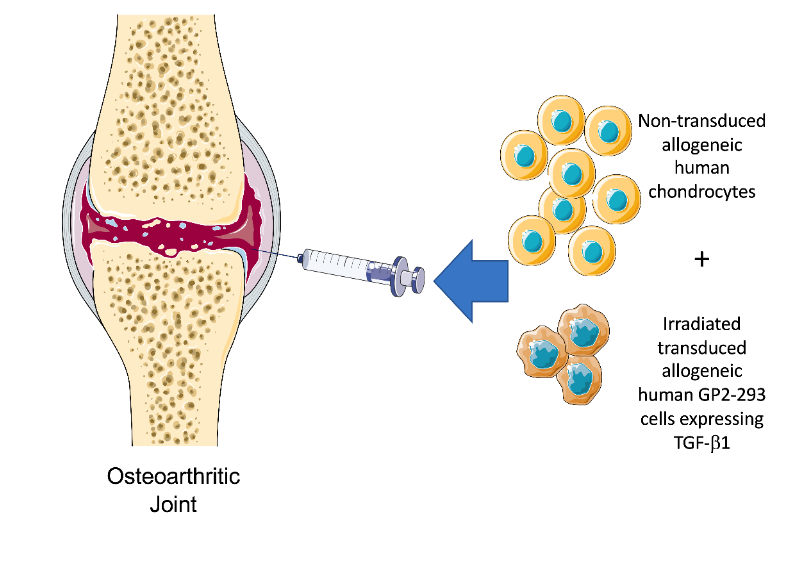This review article focuses on the current state-of-the-art in the area of cellular and molecular biotechnology for over-production of clinically relevant therapeutic and anabolic growth factors. We discuss how the currently available tools and emerging technologies can be used for the regenerative treatment of osteoarthritis (OA). Transfected protein packaging cell lines such as GP-293 cells may be used as “cellular factories” for large-scale production of therapeutic proteins and pro-anabolic growth factors, particularly in the context of cartilage regeneration. However, when irradiated with gamma or x-rays, these cells lose their capacity for replication, which actually makes them safe for use as a live cell component of intra-articular injections. This innovation is already here, in the form of TissueGene-C, a new biological drug which consists of normal allogeneic primary chondrocytes combined with transduced GP2-293 cells that overexpress the growth factor transforming growth factor β1 (TGF-β1). TissueGene-C has revolutionized the concept of cell therapy, allowing drug companies to develop live cells as biological drug delivery systems for direct intra-articular injection of growth factors whose half-lives are in the order of minutes. Therefore, in this paper, we discuss the potential for new innovations in regenerative medicine for degenerative diseases of synovial joints using mammalian protein production platforms, specifically protein packaging cell lines, for over-producing growth factors for cartilage tissue regeneration and give recent examples. Mammalian protein production platforms that incorporate protein packaging eukaryotic cell lines are superior to prokaryotic bacterial expression systems and are likely to have a significant impact on the development of new humanized biological growth factor therapies for treating focal cartilage defects and more generally for the treatment of degenerative joint diseases such as OA, especially when injected directly into the joint.

